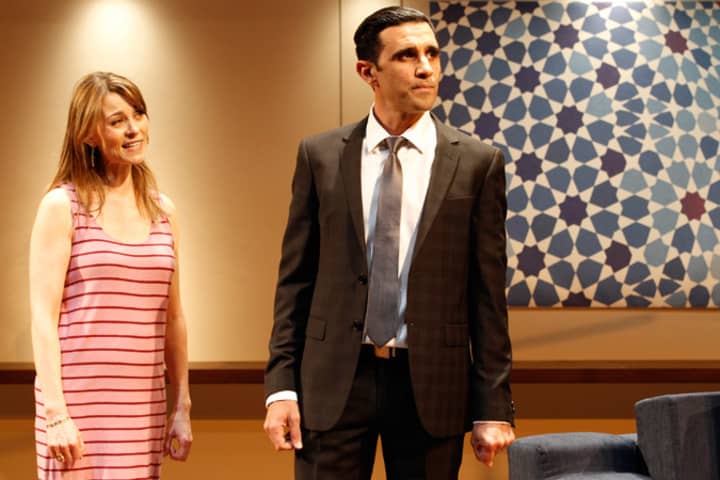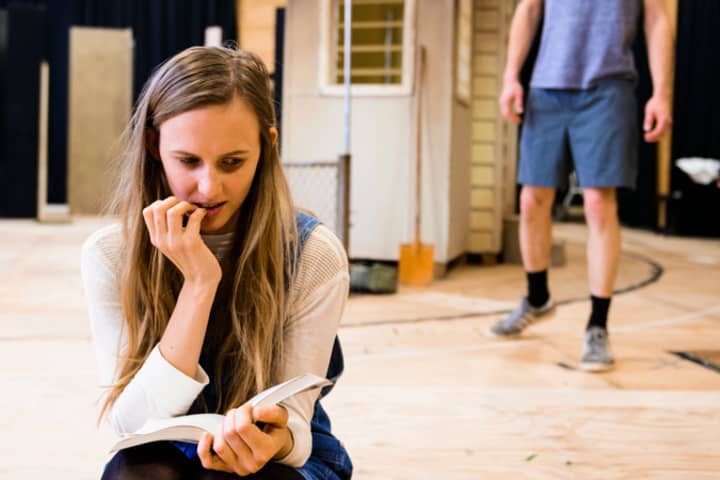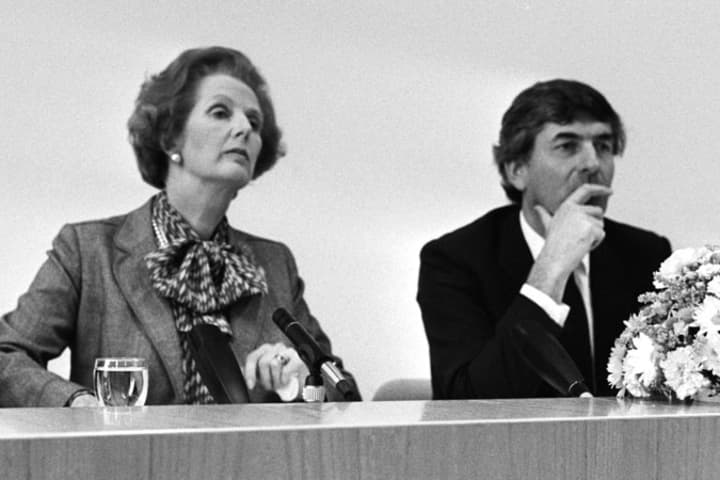When people describe racial and ethnic identity in America as a minefield, as they frequently do, they are not just reaching for the accepted cliché. What else could you call these issues that lie beneath the surface of ordinary life ready to blow up at the slightest misstep? You will see how touchy and explosive such issues can be when Disgraced comes to MTC in August. Writer Ayad Akhtar received the 2013 Pulitzer Prize for Drama for his dinnerparty play in which the host, a lawyer called Amir, believes himself somehow above the politics of race only to be brought down to earth over a single evening.
Preparing to go into rehearsals, Zindzi Okenyo, who plays Jori, a co-worker from Amir’s law firm, acknowledges that being an African-American carries far more cultural baggage than being an African-Australian, as she is. Okenyo, who was born in Adelaide to a Kenyan father and a white Australian mother, says, ‘I have had a lot of conversations with friends who are African-Australian and we’re all trying to work out what that is. We’re not sure where we fit in with Black Australia and White Australia and all the various immigrants over the years. You are part of this thing called Australia, but there’s uncertainty about what part that is.
‘That’s not to say Australia doesn’t have issues, but they’re different issues, different problems [to America’s]. When you look at America there are so many sore spots. In the play, you have a Muslim man, a black woman, a Jew and a white woman, and each of them are attached to a long, complex history of what that means. There are all these things that they’re connected to. I think, in terms of identity politics in Australia, our national identity is still evolving.’
Okenyo’s parents split up when she was very young and she grew up ‘all over the place’, including in indigenous communities in Queensland, where her mother worked as an English as a Second Language Teacher. During her high school years in Hobart, she developed a taste for performing and successfully auditioned for NIDA. For the past decade since graduating, she has been based in Sydney, building her stage career, especially at Sydney Theatre Company. She has gathered a few television credits, too, including work as a presenter on Play School. In recent years, she has been writing and performing her own music. Disgraced is her first production at Melbourne Theatre Company.
As she speaks about her career, the issue of her race – or perhaps, more accurately, her racial appearance – is a recurring theme. For any actor, appearance is a crucial factor in the roles they receive. Typecasting has never gone away and actors depend a great deal on whether they have the right ‘look’ for a role. That makes casting decisions highly subjective. ‘When you are a white person and you walk on stage, you are just there,’ she says. ‘But if you are of colour you can’t help bringing all these things, political and social, with you. That’s not your choice and can be frustrating. But, my way of looking at it is, instead of getting frustrated with it, I need to understand what that is and how I can use it. It’s a journey for me, I guess.’
Yet, for a black actor, at a time when there are increasing number of black roles coming available, there can be advantages, which Okenyo admits has helped her. ‘I’m in the great position that my colour hasn’t necessarily held me back,’ she says. ‘I’ve been in the position where a great black role would come along, such as this one, and I’m able to take it. Also, for the majority of my career, I‘ve played roles in which the colour or ethnicity of the character is non-specified. That’s a privileged position to be in. Though, I must say that Australia is still learning about colour-blind casting. Sometimes my colour seems to be an issue with producers and directors when it shouldn’t be. You go overseas and see that it’s not such a big issue there. There are a lot more opportunities.’
But in the end, she says, she’s just another working actor in an uncertain business. ‘It’s a funny thing being an actor, because, yes, you have to be talented and, yes, you have to work hard, but so much of it is completely out of your control. It’s all quite tenuous. The only thing that I have any control over is continually trying to get better. And be true to myself, too.’
Disgraced by Ayad Akhtar plays at the Fairfax Studio from 19 August to 1 October and is presented with the support of Production Partner Little Real Estate.
This article is an excerpt from Scenes, an exclusive magazine for MTC Subscribers.
Published on 10 August 2016





